Learning how to be funnier is probably the best thing you can do for your mental health.
Achievement bulimia, work as a higher power, great words, cool art.
‘Learning how to be funnier is probably the best thing you can do for your mental health.’
Words from Kyle Thiermann this week, and I’ve been thinking about them a lot. In a world of such heaviness, like 1000 lb weights of heaviness, laughter is the medicine. It’s the lightness, it’s the giddiness, my GOD it’s the freedom, to stop taking it all so seriously.
Because we do take ourselves so so seriously. All the things we give so much weight and importance to in our day, most of the time they barely matter. And it’s FUNNY how we much care about them. Life is FUNNY right now. A big fat almighty shit show hurtling round the sun 1000mph.
So with that in mind, I am STOKED to have two dear friends share their creative lightness this week:
The formidable Kyle Thiermann on achievement bulimia, working at MUD\WTR, and how ‘laughter is carbonated holiness’.
And the esteemable Dersu Rhodes on how his VICE ring became his higher power, delivering the TRUTH through comics, because he’s probably the coolest person I know.
Currently Googling how to be funnier.
—Holly Gottlieb (Founder, Whole Collective)
Corporate Counter Culture: Kyle Thiermann
For more than two years, Kyle Thiermann defined the brand voice at MUD\WTR as Senior Copywriter. Now he’s hustling the freelance game by day and writing his first book at night. Scope his newsletter and podcast at www.thiermann.substack.com, his copywriting work at www.claude.agency, and cool surf shots on Instagram.
Holly: One of our main intentions here is to tell people’s stories. Pretty much your entire career has been doing exactly that - how did that start and what do you see the value being in sharing people’s stories?
Kyle: I grew up in Santa Cruz and was part of the surf community there. As I was getting into surfing big waves myself, I thought that interviewing fellow big wave surfers could be a kind of pure journalism project and I could get useful techniques about how to surf big waves better from them. I started the podcast, which is now close to 350 shows… I gradually brought more writers onto the show and it was through asking others about their stories, that I decided that that's the career that I wanted to pursue.
I think what makes storytelling so valuable, is that we just constantly need to be reminded of how to make better decisions. We all know that we could give great advice to someone else, but we don't take it ourselves. I once heard that wisdom is nothing more than being able to take your own advice. So I've been deeply impacted by podcasts that I've listened to and the good ones really do change my decisions and change the way in which I see the world.
As an example, I've always been pretty hard on myself and my mom once told me that I have achievement bulimia… I can never actually digest my achievements and I would just always be hungry for more. I think it's a pretty unhealthy way to go about life because you can never fully appreciate anything that you've done. And I I listened to a podcast with Judd Apatow. He was being interviewed by Sam Harris, and Judd Apatow said that straight after he made Freaks and Geeks, which was a good TV show, he just decided that he was going to say, ‘oh, I've made it’. Everything else on top of this is just kind of gravy and I'm going to choose to look at myself as a success rather than the standard artist's route of just torturing and flogging yourself to the end of your life. And I found a lot of inspiration in that orientation. So it's like, whoa, Kyle, why don't I just just think of yourself as a success? And it can really be as simple as that.
Holly: I think it’s fair to say that feeling doesn’t just go for artists, but a lot of us in many professions have this disease of never enough.
Kyle: Well, we kind of fetishize it because we think that it'll make us work harder, but I think that it more often than not leads to burnout.
Holly: A good segway into landing your corporate gig at MUD\WTR. Can you share about that experience?
Kyle: I didn't know what a copywriter was before I joined MUD\WTR, but I had a lot of experience writing and also as a stand up comedian. What stand up comedy teaches you is how to observe the world and communicate it in really terse forms of speech, which is basically what copywriting is.
I was brought on at MUD\WTR pretty early on and was tasked to define the voice and tone of the brand. Shane Heath, the founder, is a really funny writer and a lot of what humor is, is just being willing to take a risk and then be willing to be hated by some people and loved by many others, which he was totally willing to do. The very well known tagline now ‘not mad at coffee, just disappointed’ was something he came up with the first day he started the company and I kind of got the tone right away and started writing freelance for them. It's pretty rare though that those kind of ideas come from inside a brand, so I actively wanted to get more exposure via the agency route.
The work that I do now with brands is largely to create a brand personality, and sort of personify that brand and tell a story around it that people can connect with. It's very similar to what it’s like writing a story about a person, whether it's a profile piece or or doing a podcast. You're kind of just trying to figure out what's true about this personality and how can you take it out into the world as clearly as possible.
Holly: I’m not a fan of the term ‘mental health’, but what do you see the bigger interest being in how people can better themselves and look at their mind and body and soul and meaning in life…
Kyle: You know, I think that learning how to be funnier is probably the best thing you can do for your mental health. I think that what worked about MUD\WTR and what we did there was that we were irreverent about mental health and sleep and mushrooms and psychedelics. I think that there's a humorlessness that permeates the mental health and healing world, which gives way to a kind of serious sanctimony, that just creates a heaviness around the vibe of everything that you do and everything that you face in life.
I think what resonated about MUD\WTR was that we were essentially saying we're willing to talk about this hard stuff, but we're going to do it with a laugh, and we're going to make fun of ourselves and we're going to make fun of the world. One of my favorite writers is Anne Lamont, and she has a line which is ‘laughter is carbonated holiness’. And I think about that a lot. I believe you can learn to see the world with more humor - and it really is a learned skill. I think people tend to think that being funny is just something you're either born with or you're not, but I think it's just like anything - you can learn to perceive the world in a funnier way, and things tend to get a lot easier when you do.
Holly: That's really good shit. I love that. I got a lot out of you just now. I feel like I've milked a cow. We owe you a thank you for the line ‘Trojan horsing the corporate world with profound hippie shit’. Is that the angle that you think speaks to people? Is that we're not taking it so seriously.
Kyle: Yeah I think that it's going to work for you guys because people tend to be pretty exhausting when they're just serious and vulnerable all the time. I think that often they use it as a technique for attention. It’s a much more attractive thing to just have a bit of a lighter tone.
Even more than the content of what you're saying, I think that the tone of what you're saying is what people resonate with and will remember. And at the Whole Collective events I've been to, you're talking about real stuff, but you're also willing to have a good time and play good music and people can dress up and be themselves.
It is ultimately just about creating a culture where people can actually feel free to be themselves. And I think there's a huge amount of hypocrisy in the “healing culture” where it's like you're speaking out of one side of your mouth saying we want you to be authentic, but what they mean is, ‘we want you to be authentic like us’. And if you can create a culture that allows for real conversations to happen and for people to drop their shoulders a bit… I think that you'll probably make $100 million really quickly.
Semi-Conscious Comics: Dersu Rhodes
Formerly known as the VP of Creative at MUD\WTR in Los Angeles, and Creative Director at VICE. ‘Raised by creative hippy parents in Montana, I didn't have a television until I was nine. And from a quiet yearning to fit in as a child and "just be normal," a necessity for storytelling emerged.’ See Dersu’s creative work at www.dersurhodes.com, and his Semi-Conscious comic series at @secondhand_sheets.
Trojan horsing the corporate world with profound hippie shit.
Thanks for following along folks. If you like what you're seeing so far, sharing this Substack far and wide would be very helpful.
My real intention behind growing this thing, is that no-one should not know where to go to find the help they need. At one point, I thought I was losing my mind. I didn’t know where to go and what help I actually needed. It’s not that help didn’t exist, I was just looking for it in the wrong places.
So here we are. You’re not alone. There is a way through.
—Holly Gottlieb (Founder, Whole Collective)
Cover photo by Pete Vlastelica.

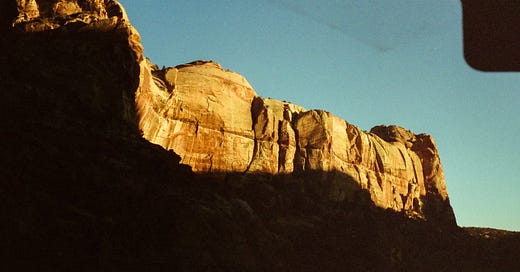

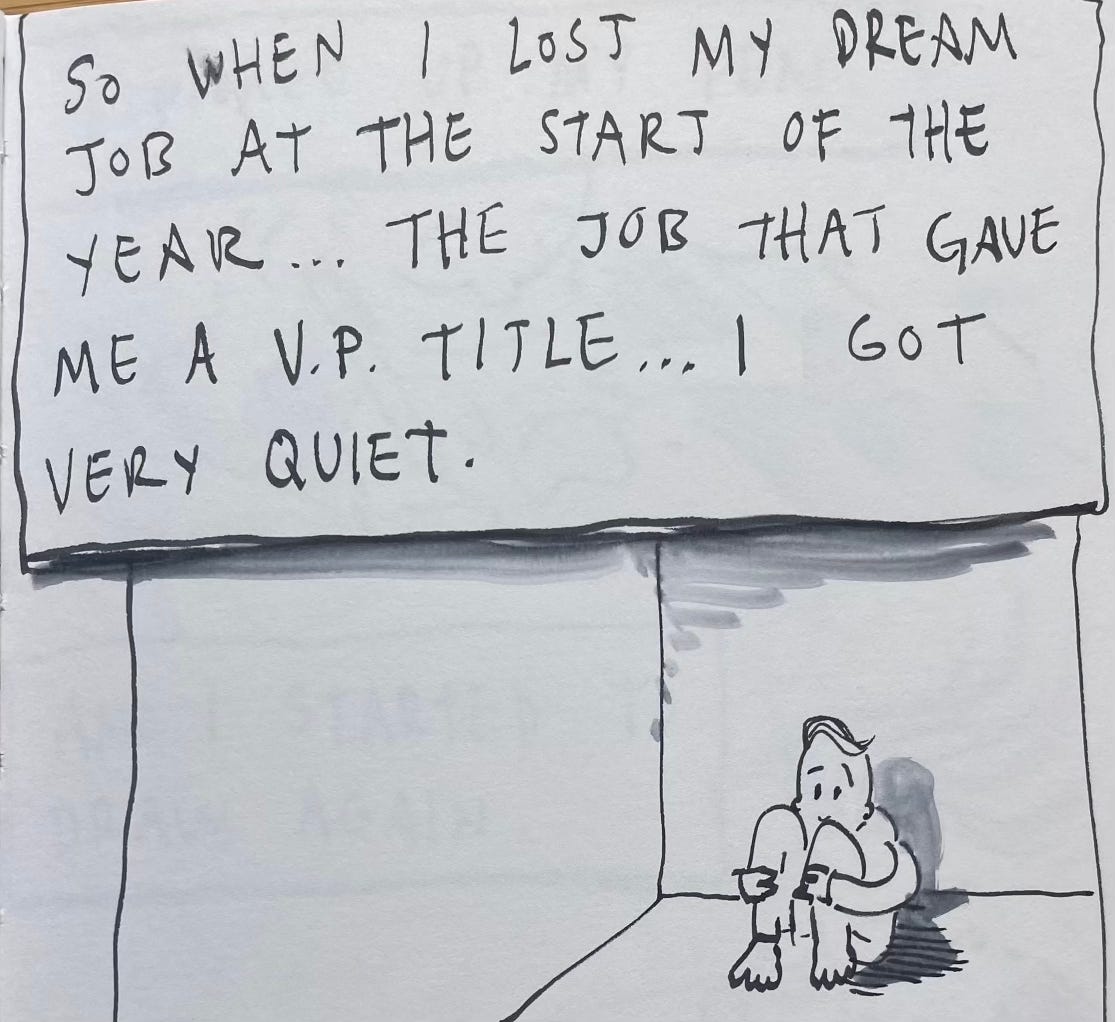
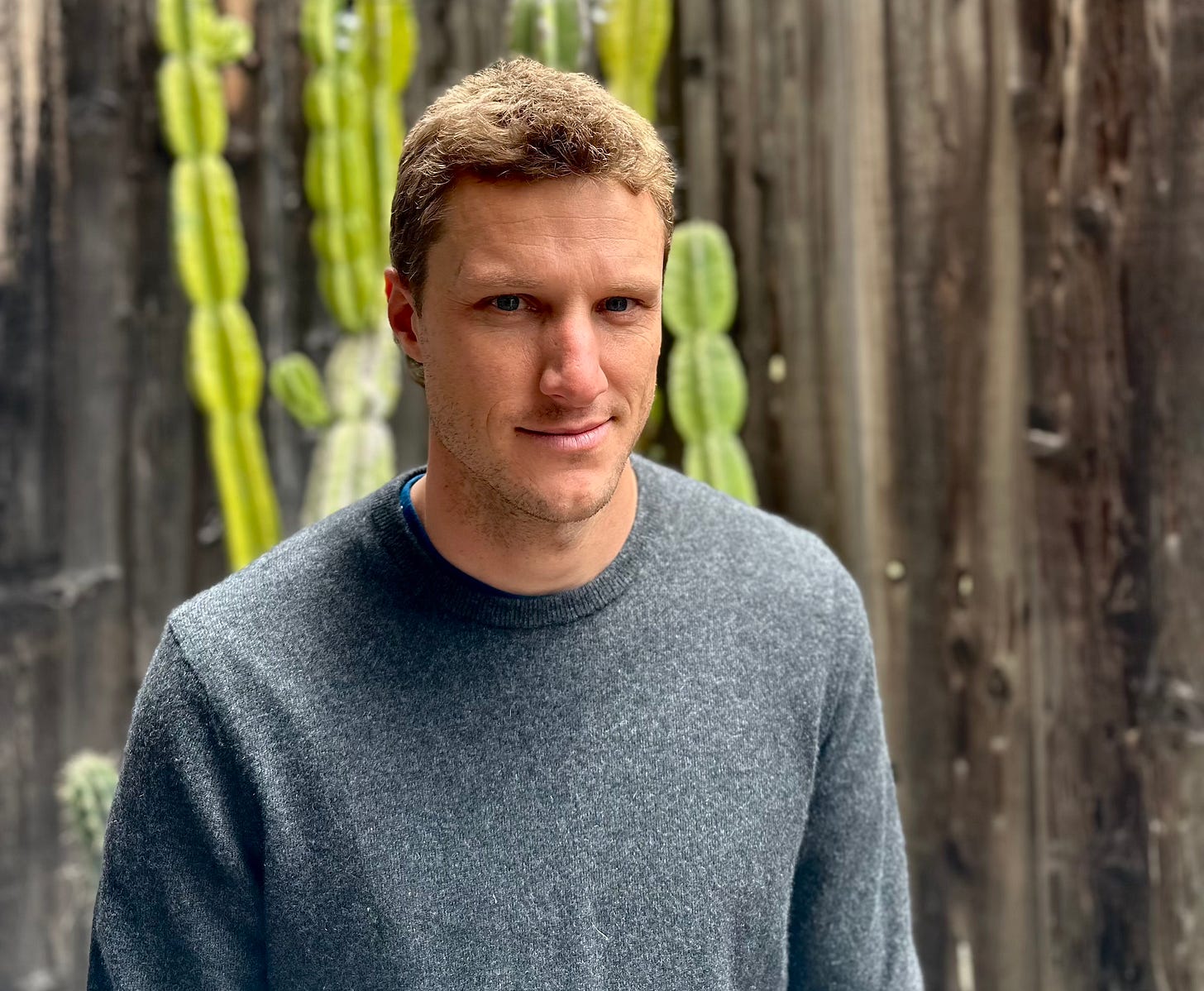
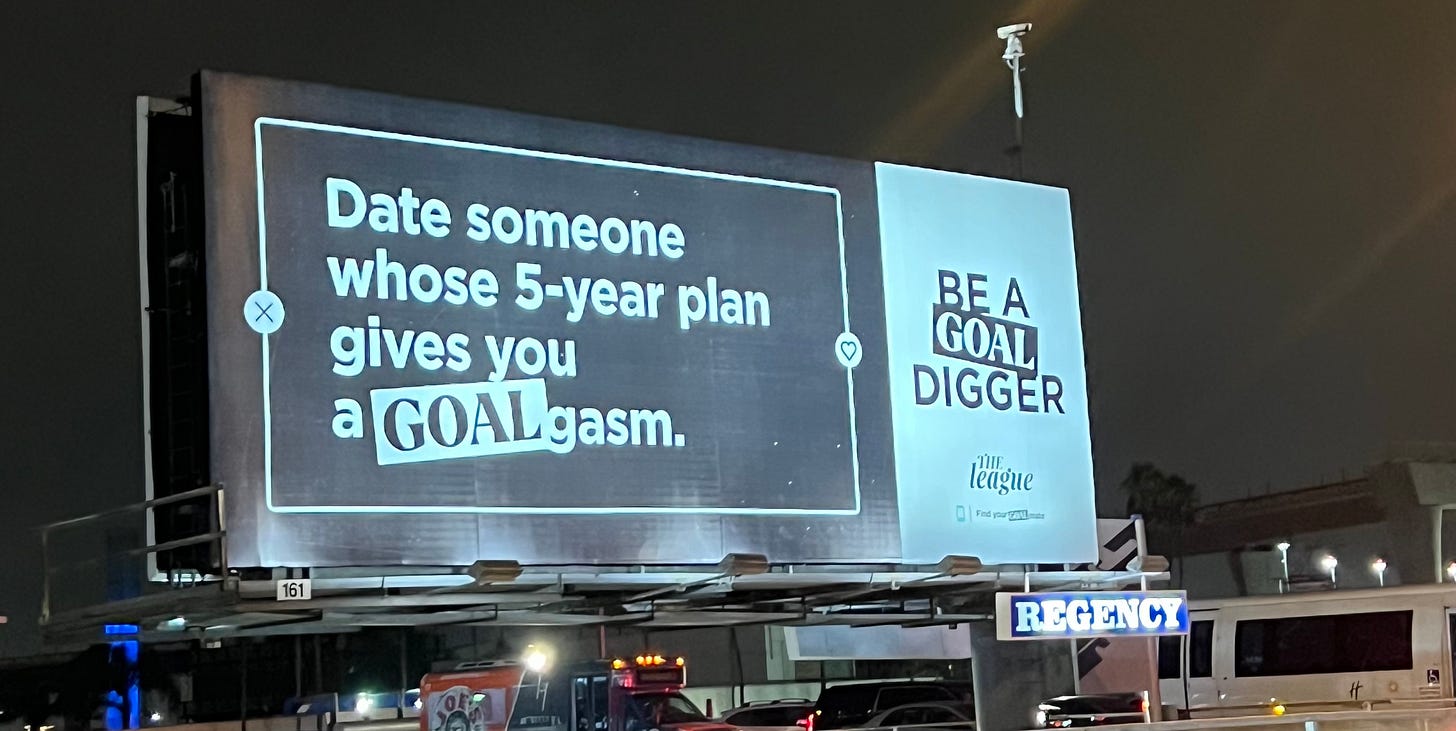
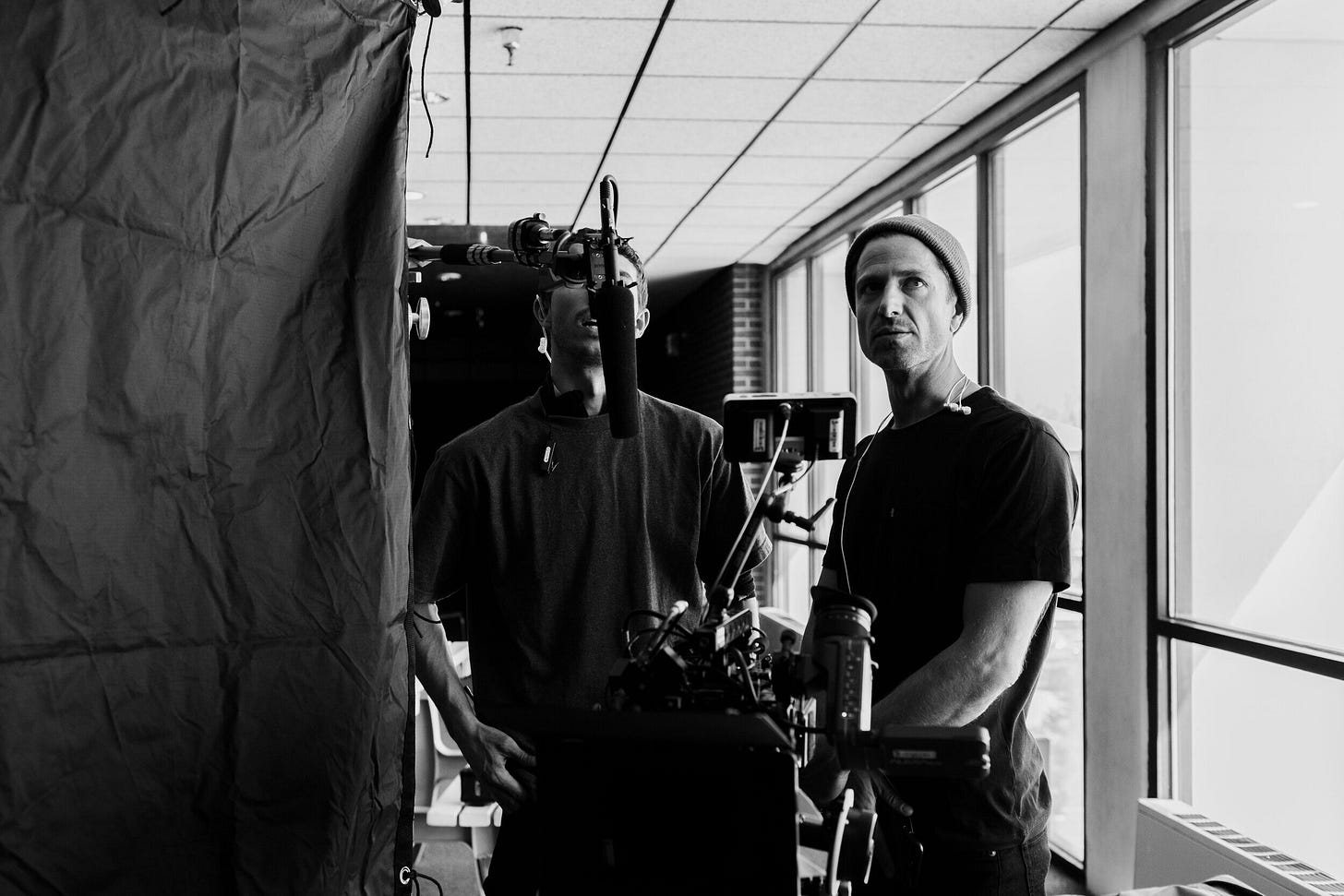
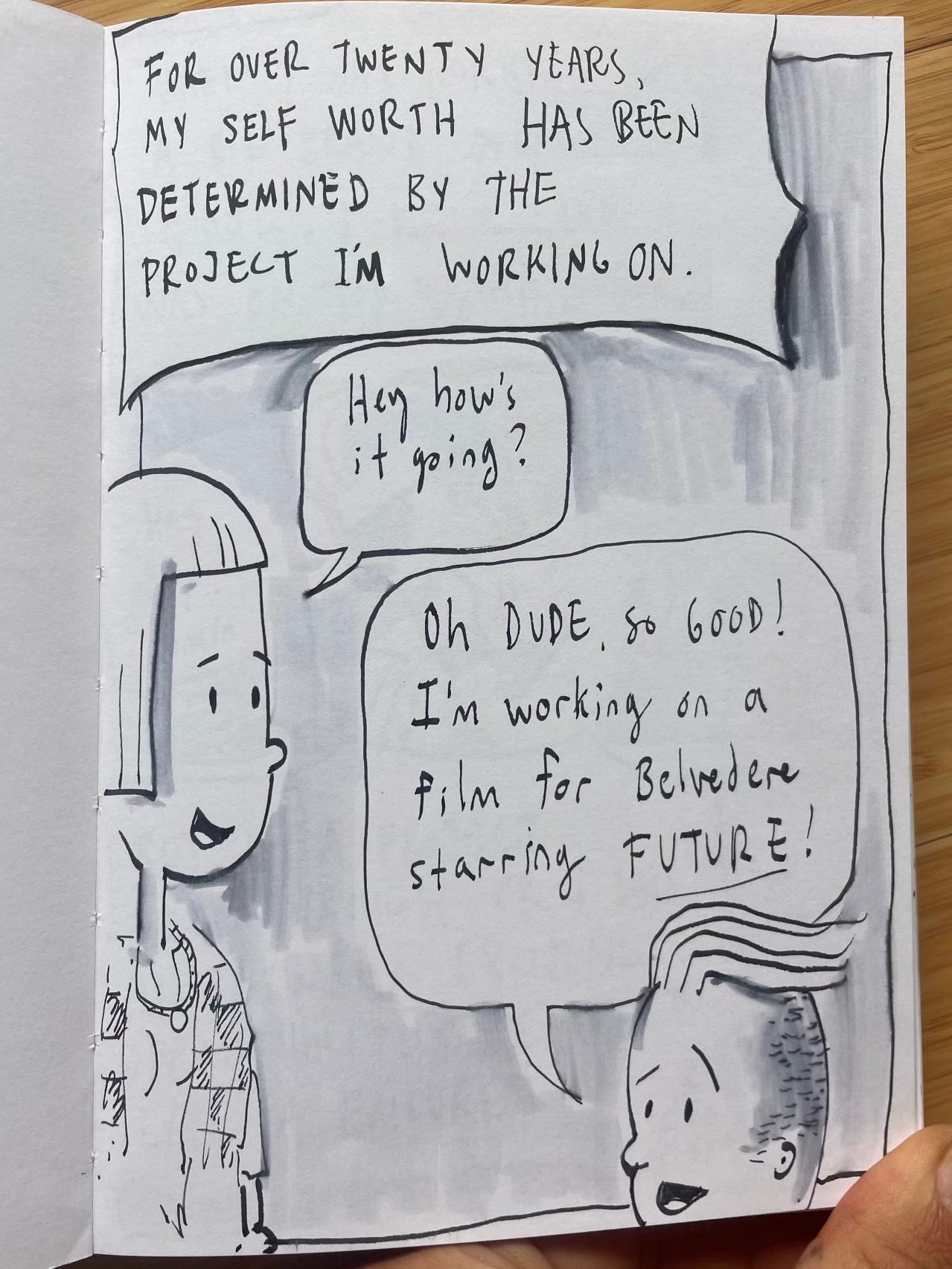
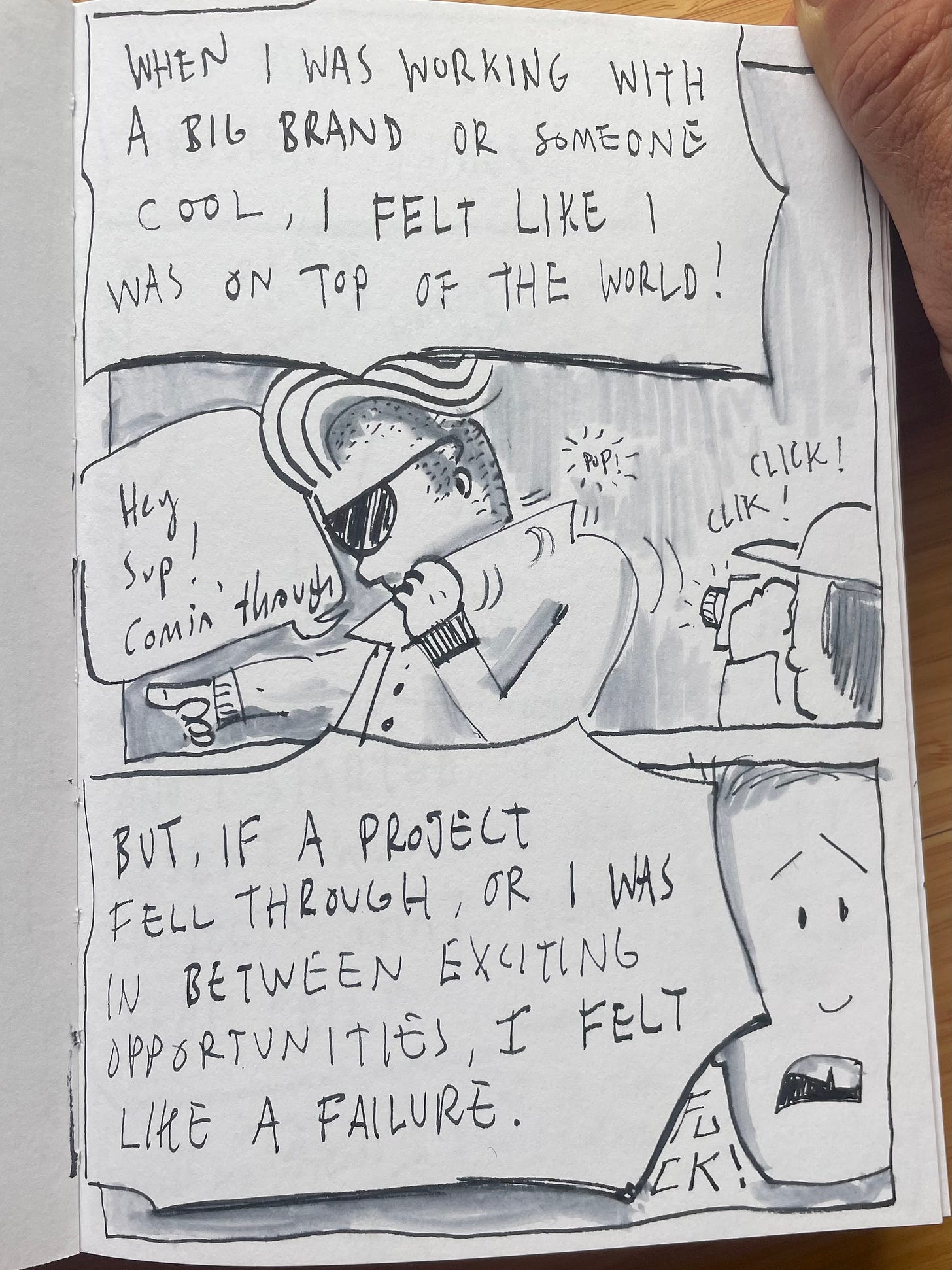
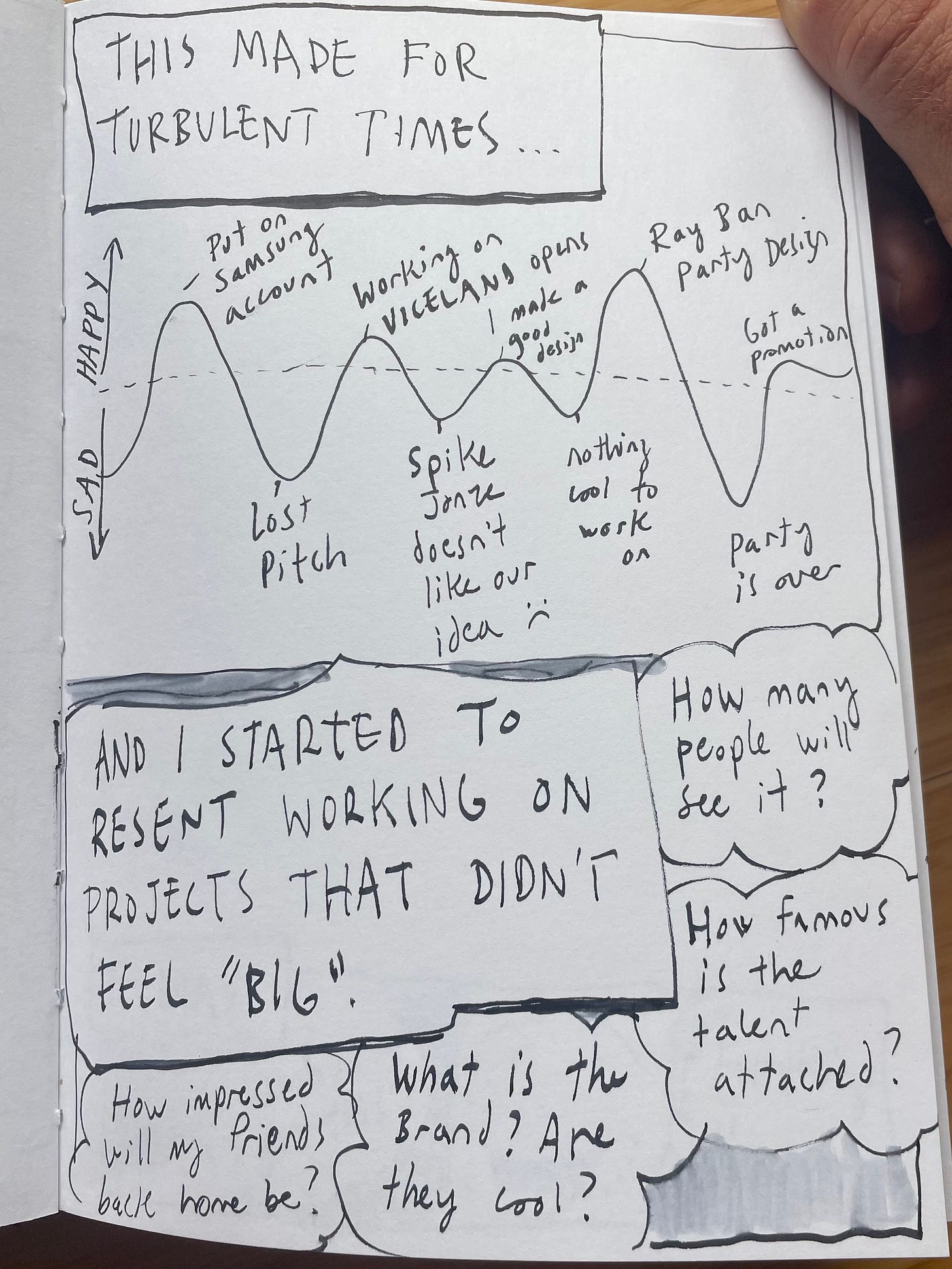
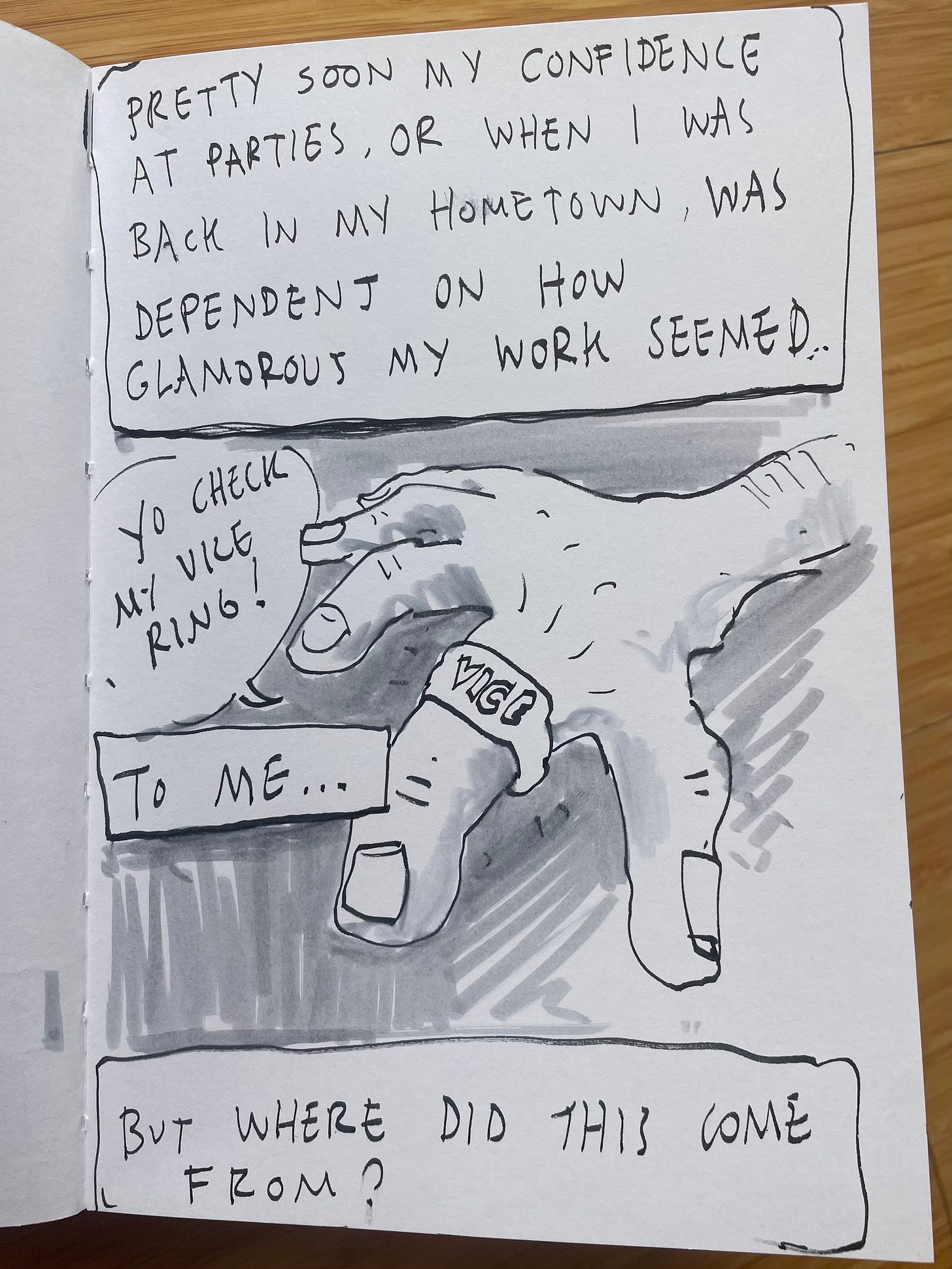
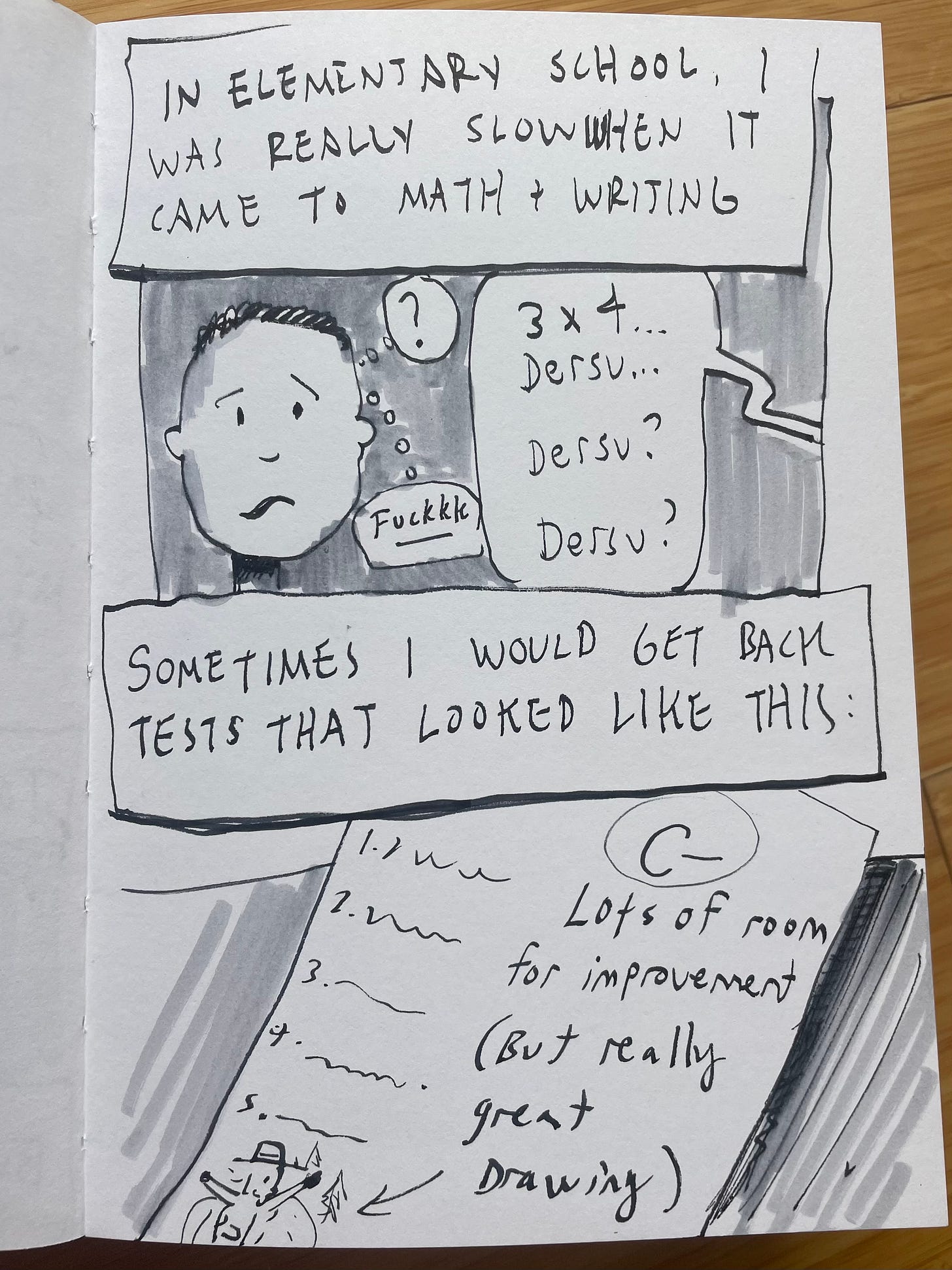
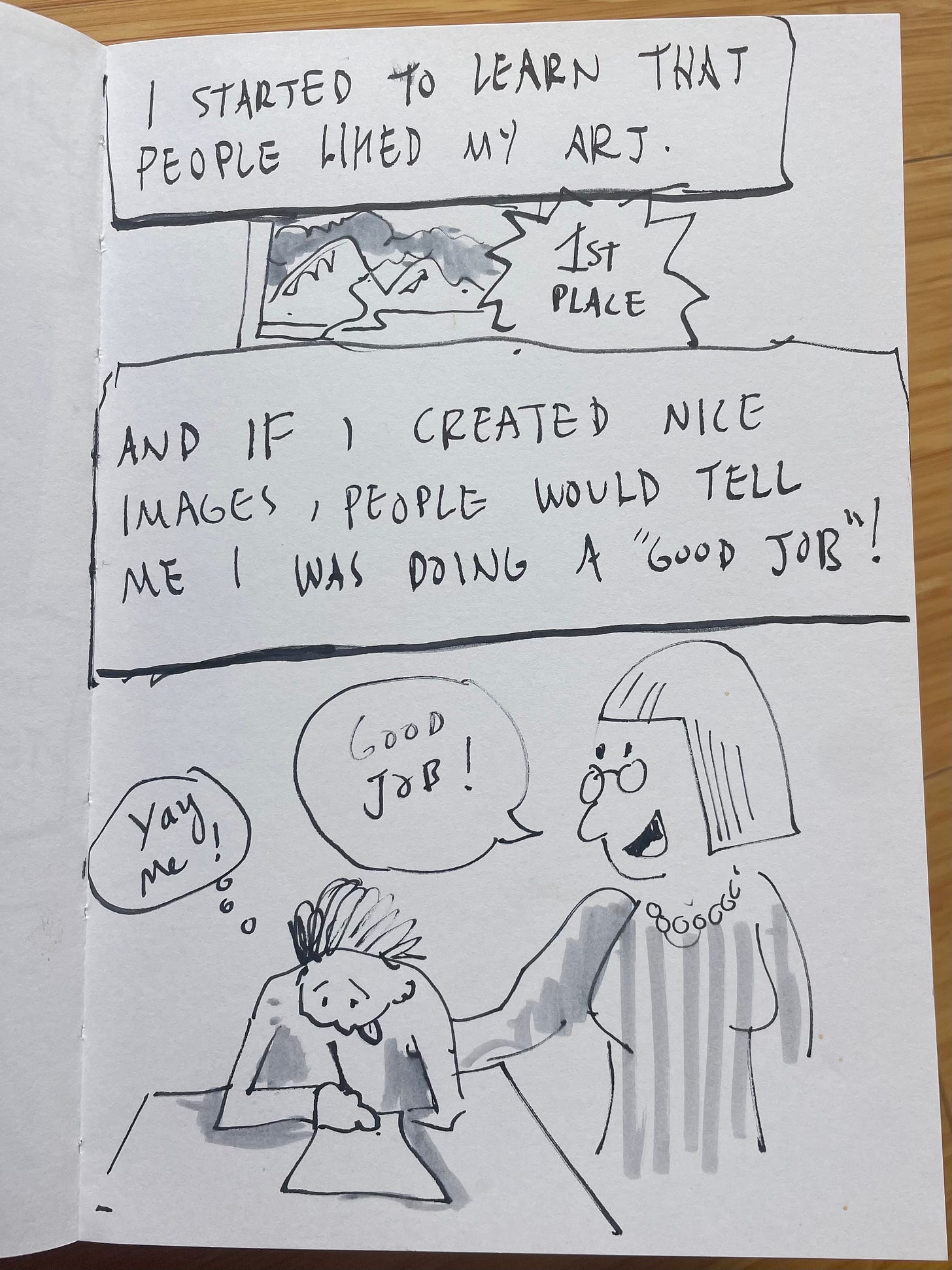
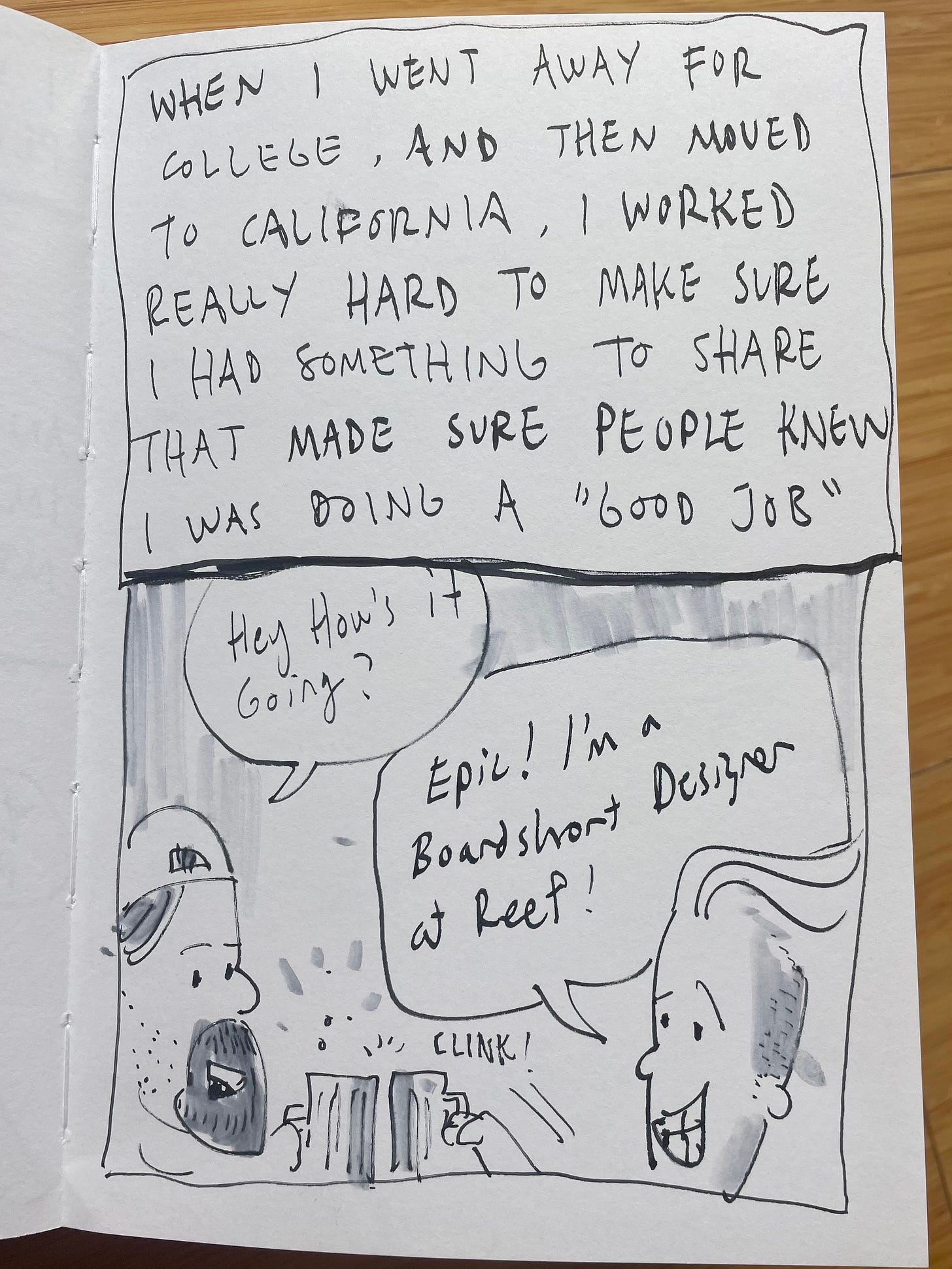
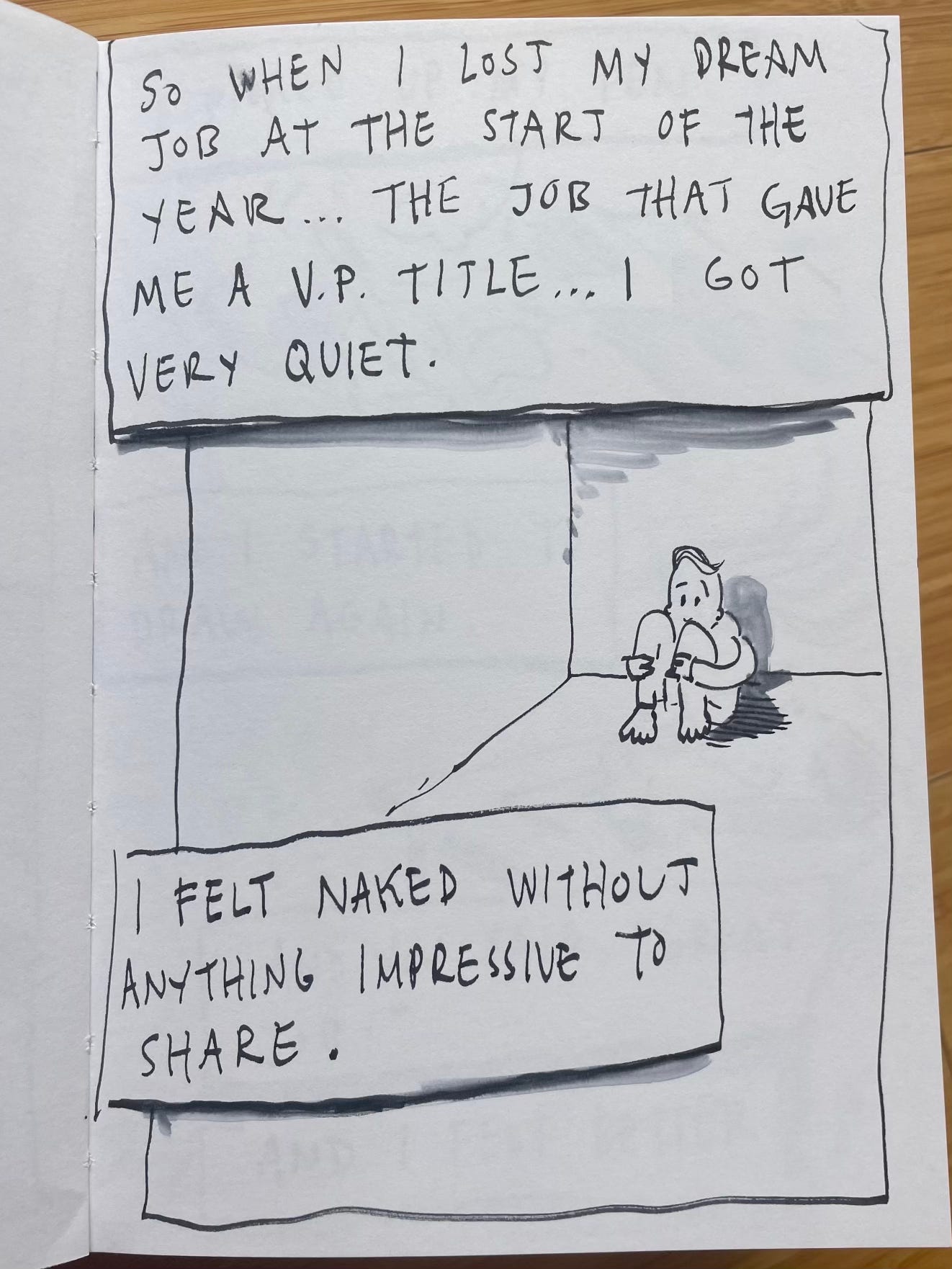
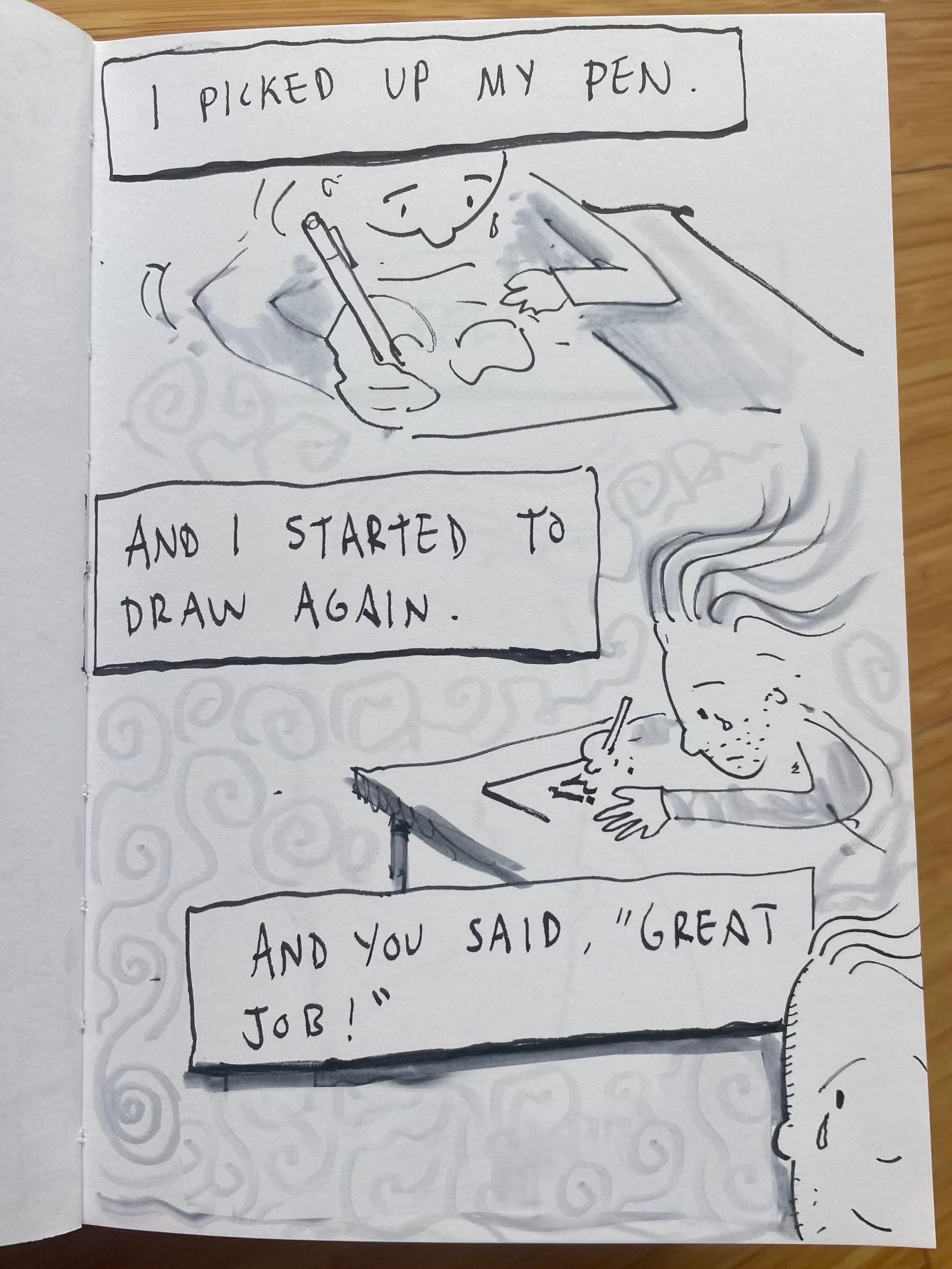
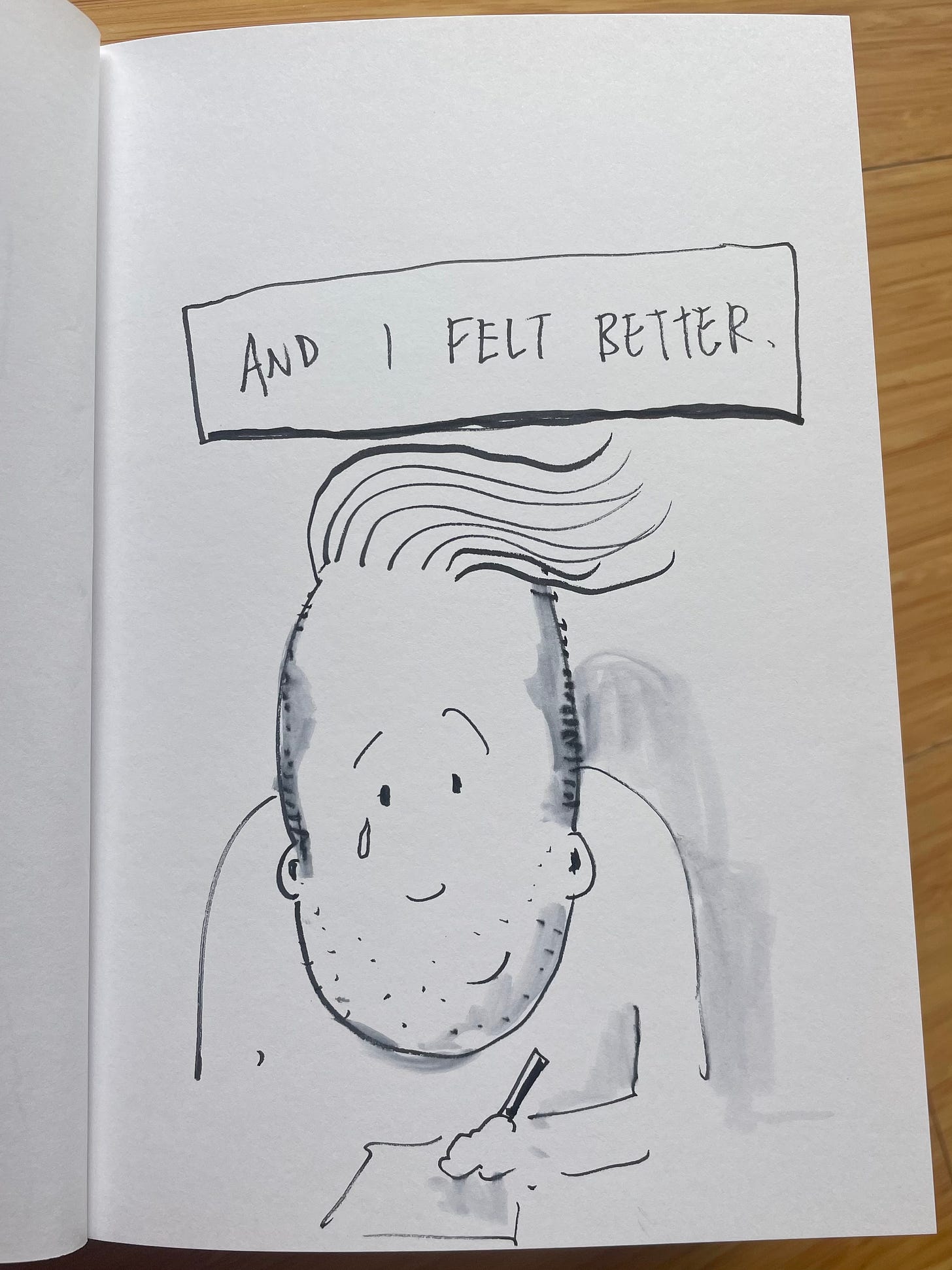
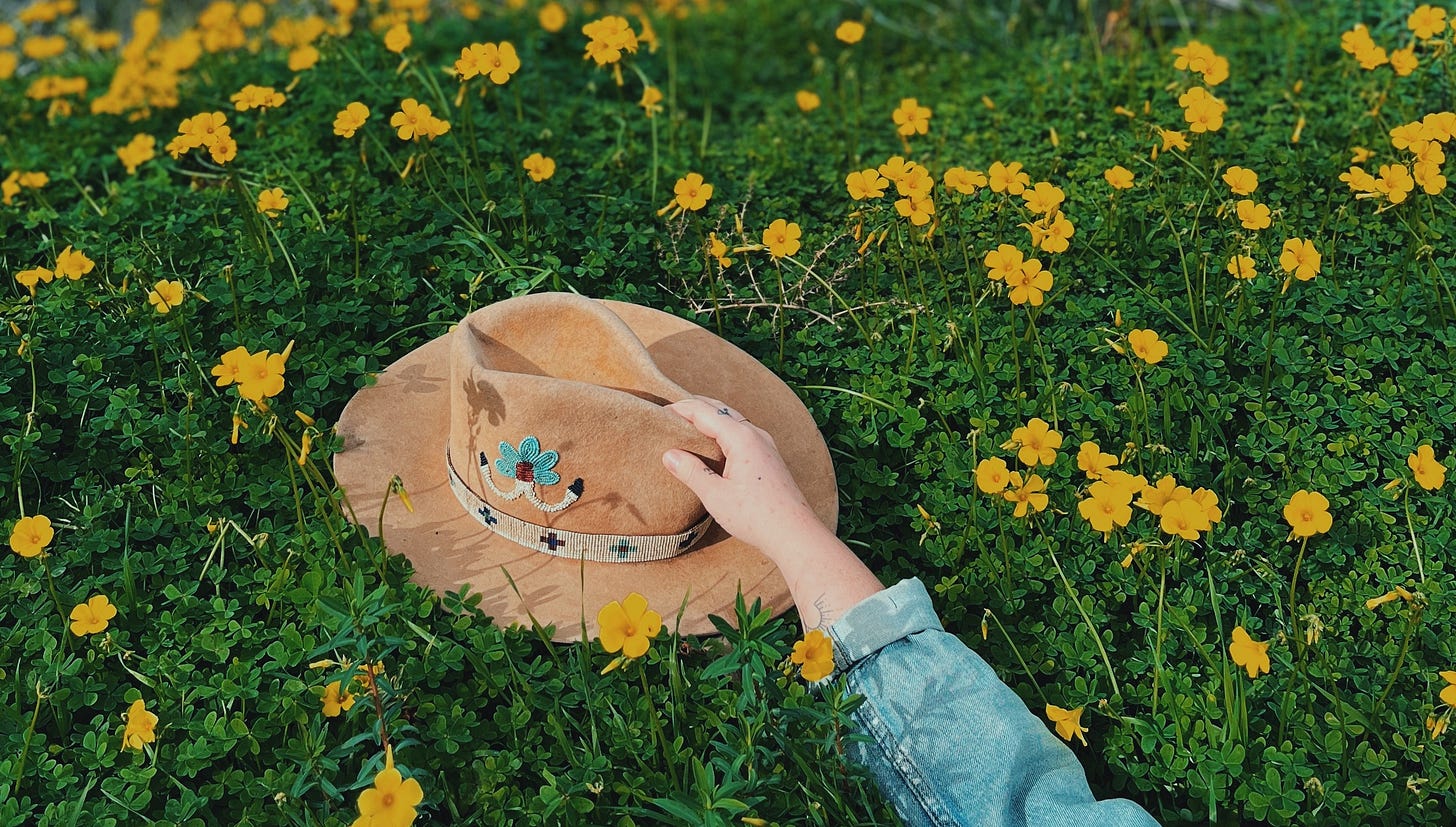
Thanks for the interview Holly. You’re good question asker. You should interview Howard Schultz. I want to know how many cups of coffee he drinks each day.
comics at the end induced a few tears. loved this!